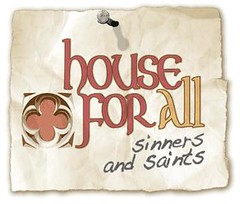You can find a review here .
The prologue and introduction are full of fodder for growth and an interchange of ideas. Let's start with the story Larkin tells of a "young man named Eugene who was desperate to find a truly holy person with whom he could study." After much searching, Eugene eventually happens upon a guy in woods who works for a hot-shot holy woman called Jaya, who has an incredible reputation for what she can do for her students' spirituality. It takes Eugene taking three years and many near-death experiences to even gain admittance into Jaya's complex, where he is instructed to wait in the shrine room. Eugene is told it won't be long before Jaya is able to meet with him.
So Eugene waits. But he really has to pee.
"'I have to go to the bathroom,'" Eugene says to Jaya's assistant.
"'You have to stay in the shrine room.'"
Eugene sure waits his best, and at last, hours later, he aims at a corner of the shrine room and pees like nobody's business, whereupon he is dragged away by two acolytes, with the largest bellowing,
"'How dare you!'"
"'You show me a place that isn't holy, and I'll pee there!'"
"'He stays'."
"It was Jaya."
1. What is your reaction to this approach to the holy?
2. What can communities of Christian disciples learn from this story that can be applied to worship?
In her introduction, Larkin isn't afraid to deal a significant blow (or is it constructive criticism?) to her celebrity crush, on a serious count of spiritual arrogance.
Larkin writes, "The Interview was about a movie he had just directed. It was about Jesus Christ. As a card-carrying Buddhist, I have have always been moved to tears by the last hours of Jesus. Even as I write, I can barely fathom the depth of love and compassion for the people harming him. It is the best love story ever." Larkin goes on to describe the situation that sparked her accusation:
My crush was responding to criticisms of his interpretation of the story...As I remember it, the interviewer asked how he would respond to someone criticizing his film.
A pause. 'I'd forgive them.'
Oh, no. The arrogance in his voice told me he had it wrong. It was that 'I'm-better-than-you tone that gives me the goose bumps because it's the same tone that says 'You don't get God because he's ours.'
3. What is it like for you to read about a non-Christian pouring her heart out over her love of Jesus? What feelings and ideas come up for you?
4. What is your sensibility about what differentiates self-perceived spiritual accuracy from self-deceived spiritual pride?
5. What's your favorite story or quote in the book so far?
Labels: Book Discussions, Spiritual Formation, Theology, Women in Ministry











 Sorry for the delayed book discussion this month, I've been kinda out of touch online since my son was born a month ago. But it's the summer, so laid back is all good right? :)
Sorry for the delayed book discussion this month, I've been kinda out of touch online since my son was born a month ago. But it's the summer, so laid back is all good right? :) "Take a minute to study this creation – an imaginary plant that bears over the course of one growing season a cornucopia of all the different vegetable products we can harvest. We’ll call it a vegetannual ..."
"Take a minute to study this creation – an imaginary plant that bears over the course of one growing season a cornucopia of all the different vegetable products we can harvest. We’ll call it a vegetannual ..."





